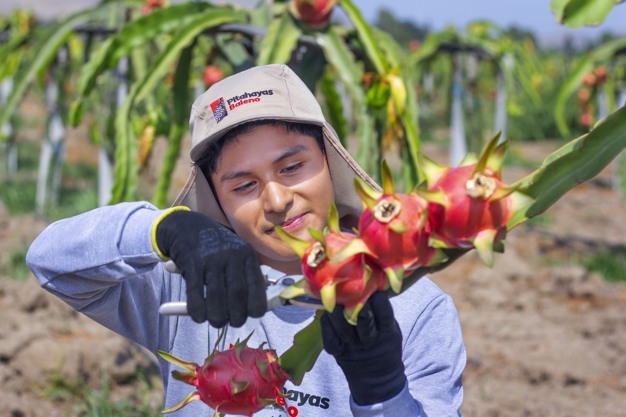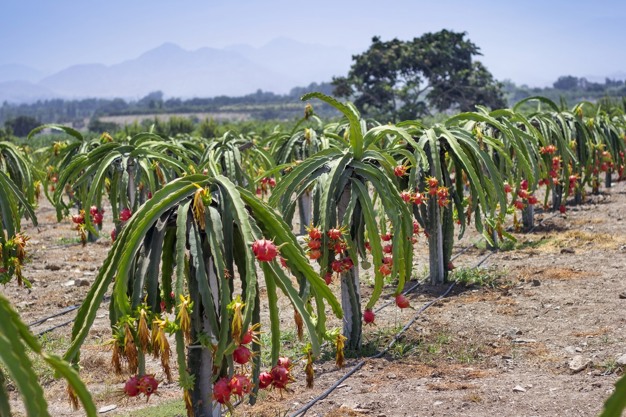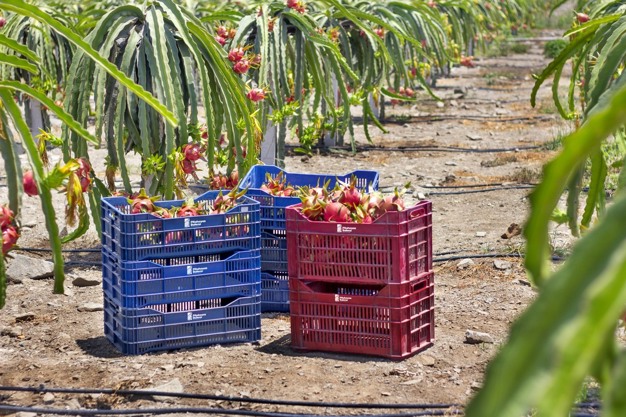The pitaya market is experiencing exponential growth, with the fruit establishing itself as a flagship product in key markets such as Europe. Known for its unique flavor and health benefits, the product has seen a 202% increase in global demand between 2019 and 2024, with sustained growth projections for the coming years. In this context, Peru seeks to position itself as one of the main pitaya exporters in Latin America, competing with countries such as Ecuador.

Pitahayas Baleno, one of the leading Peruvian companies in the sector, managed to export 36 tons in its first production season of 2024, with a CIF value of 126,000 dollars. "For 2025, we have set the ambitious goal of reaching 300 tons and an FOB value of 840,000 dollars, taking advantage of growing demand and our participation in international fairs," says Juan Diego Vargas, the company's head of business intelligence. To achieve this goal, Baleno has implemented innovations such as the installation of LED lights, which will make it possible to extend the harvesting season from five to eight months.
Peruvian pitaya is sold at a minimum FOB price of 12 dollars per 4 kg box, although this value can vary depending on customer requirements. However, high logistical costs, especially the air freight needed to preserve the fruit's freshness, represent a significant challenge. In order to minimize these costs, Pitahayas Baleno negotiates in advance with airlines and freight forwarders to secure competitive prices and be able to offer attractive rates to international buyers.

However, there are also challenges. The lack of phytosanitary protocols is currently preventing the export of Peruvian pitaya to the U.S. market; an issue that the company hopes to address in the short term. "Competing with Ecuador in the United States would be a big step for us, given that this country delivers 60% of its exports to this market. We are working hard to turn this dream into a reality next year," says Vargas.
Aware of the importance of sustainability, Pitahayas Baleno has certifications such as GlobalGAP and Grasp, and is planning to obtain an organic certification in 2025. These measures aim to guarantee the quality of the product while also meeting the growing demands of environmentally-conscious consumers.

The company also has some diversification plans for the future. In addition to pitaya, it is considering expanding into other high-value products, such as avocado and blueberry, which already have a consolidated market in Peru. "We are keeping a close eye on global trends and are ready to adapt to take advantage of new opportunities," says Vargas.
The growth of the pitaya industry is having a significant impact on the Peruvian economy, generating employment and positioning the country as a key player in the international agricultural sector. Although challenges such as logistical costs and the impact of climate change, illustrated by the effects of Cyclone Yaku, have put producers to the test, companies like Pitahayas Baleno demonstrate resilience and capacity for innovation.

"Cyclone Yaku had a significant impact on the pitaya production in northern Peru. This weather phenomenon caused the flooding of roads, making it difficult to obtain the necessary supplies for the care and maintenance of the plants in a timely manner. As a result, there were delays in the growth and development of the crops, which took a toll on the expected production for the season," says Vargas.
For more information:
Juan Diego Vargas
Pitahayas Baleno
Tel.: +51 980 488 201
[email protected]
https://pitahayasbaleno.com/
